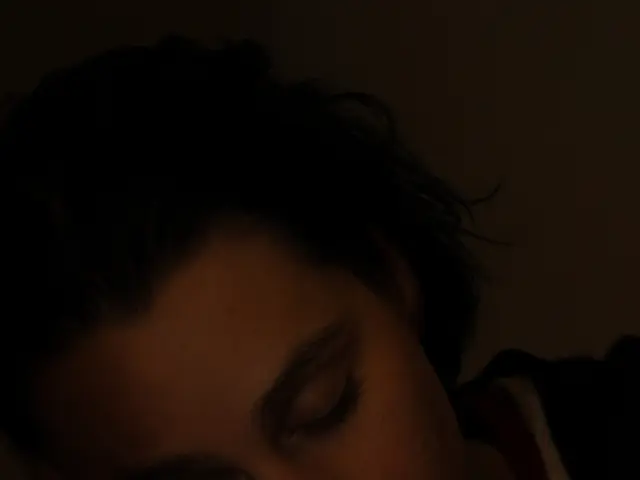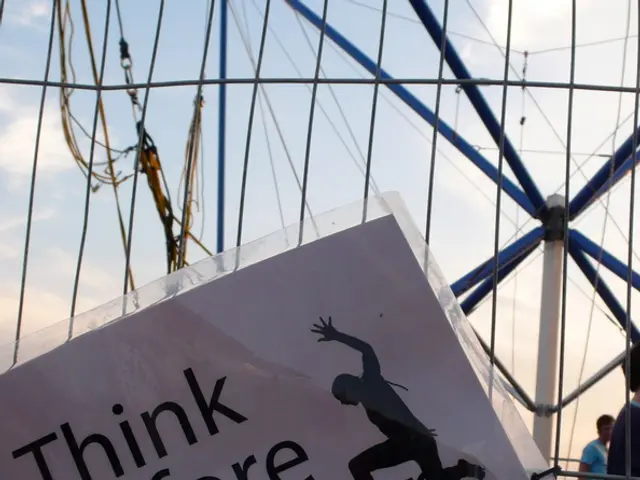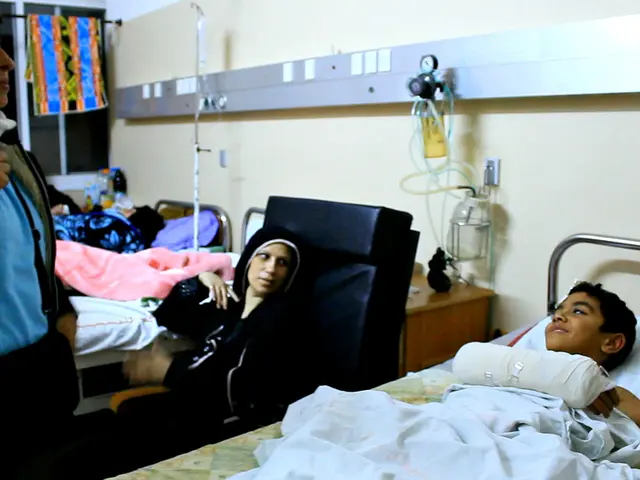Anticipated Progression: Timeframe for Overcoming Post-Concussion Syndrome
Covering post-concussion syndrome (PCS), this guide takes a comprehensive look at the diverse factors impacting recovery time, the three stages of PCS recovery, and helpful strategies for healing.
Factors Impacting Recovery Time
The amount of time it takes to recover from PCS can vary significantly due to several key elements:
Injury Severity
The initial injury's extent plays a crucial role in determining recovery time. More severe concussions—those involving greater degrees of neurological disruption—often necessitate a longer healing period. Common symptoms such as headaches, dizziness, cognitive impairments, and emotional disturbances may persist for an extended duration in cases of severe injury.
Age
Age is another significant factor that can affect recovery time. Older adults might experience delayed recovery periods due to age-related changes in brain resilience and healing ability. Additionally, older individuals might have underlying health issues complicating recovery and prolonging symptom resolution.
Pre-existing Conditions
Individuals with pre-existing medical conditions, such as neurological disorders, mental health conditions, or chronic illnesses, may face an extended recovery after a concussion. These underlying health issues can exacerbate symptoms and hinder the brain's capacity to recover completely from the injury.
Support System
The presence of a solid support system, including family, friends, healthcare providers, and mental health professionals, can significantly affect recovery time. Emotional support, practical assistance with daily tasks, and encouragement help individuals cope with the challenges of PCS and navigate the recovery process more effectively.
The Stages of PCS Recovery
The PCS recovery process typically progresses through three distinct stages, each with unique characteristics and timeframes:
Acute Phase (0-2 Weeks)
During the initial stage, which usually lasts the first two weeks post-concussion, people might experience various physical and cognitive symptoms. Typical symptoms include headaches, dizziness, nausea, fatigue, sensitivity to light and sound, and difficulties with concentration or remembering information. Rest and relaxation, both physical and cognitive, are generally recommended to facilitate healing and alleviate symptoms during this phase. It's vital for individuals to avoid activities that could worsen symptoms, such as vigorous exercise, screen time, and mentally demanding tasks.
Subacute Phase (2-4 Weeks)
In the subacute phase, spanning roughly two to four weeks post-injury, there may be a gradual improvement in symptoms. While some symptoms might begin to recede or lessen in intensity, others may persist or fluctuate. Continued self-care strategies—such as medical treatment, rest, stress management, and exercise—should be practiced, with guidance from healthcare providers, as individuals slowly reintroduce activities.
Prolonged Recovery Phase (4+ Weeks)
The prolonged recovery phase encompasses time beyond four weeks post-injury, during which symptoms may still persist but could continue to improve for months or even years. Solutions for individuals with prolonged recovery often include ongoing medical evaluation, support, and rehabilitation to help manage symptoms and attain continued improvements.
Strategies for Recovery
To promote recovery from PCS, a multi-faceted approach involving various strategies can be beneficial:
Medical Management
Medication
Prescription medications might be prescribed by healthcare professionals to help manage significant symptoms such as headaches or insomnia.
Rehabilitation
Both physical and cognitive rehabilitation programs can aid in improving overall function and reducing PCS symptoms. These programs are tailored to individual needs and might include exercises, therapies, and techniques to enhance cognitive abilities.
Rest and Relaxation
Sleep
Adequate restorative sleep is essential for the brain to heal and recover from concussion effects. Establishing a consistent sleep schedule and creating a conducive sleep environment can foster recovery.
Stress Management
Engaging in stress-reducing activities, such as meditation, deep breathing exercises, or gentle yoga, can help cope with tension and promote relaxation, which is essential for healing.
Gradual Return to Activity
Exercise
Incremental reintroduction of physical activity, under the guidance of healthcare providers, can enhance overall health and function while minimizing the risk of symptom exacerbation. Begin with low-impact activities and gradually increase intensity and duration as tolerated.
Work
Returning to work should be done gradually and comfortably, with flexibility in work arrangements, accommodations, and modifications to support the recovery process.
Lifestyle Adjustments
Diet
Consuming a well-balanced diet rich in nutrients, vitamins, and antioxidants can aid brain health and facilitate recovery by integrating whole foods, such as fruits, vegetables, lean proteins, and healthy fats, into the diet.
Alcohol
Alcohol consumption should be minimized or avoided entirely during the recovery period as it might interfere with sleep quality, cognitive function, and overall progress.
Conclusion
PCS recovery can be challenging, but adopting the right strategies and support can foster progress. Gaining insight into the factors affecting recovery time and the stages of PCS recovery can help individuals and their loved ones navigate this process more smoothly.
- The extent of the initial injury in a post-concussion syndrome (PCS) case significantly influences recovery time, with more severe concussions requiring a longer healing period due to greater neurological disruption.
- Older adults may encounter delayed PCS recovery due to age-related changes in brain resilience and healing ability, possibly exacerbated by underlying health issues.
- Individuals with pre-existing medical conditions, such as mental health conditions, neurological disorders, or chronic illnesses, might experience extended recovery periods following a concussion due to exacerbated symptoms and hindered healing capacity.
- A strong support system plays a crucial role in PCS recovery, offering emotional support, practical assistance, and encouragement for coping with the challenges of PCS and enhancing navigational efficacy throughout the recovery process.
- The PCS recovery process typically progresses through three stages: the acute phase (0-2 weeks), subacute phase (2-4 weeks), and prolonged recovery phase (4+ weeks), each with unique physical, cognitive, and time-related characteristics.
- To enhance PCS recovery, a multi-faceted approach involving medical management, rest and relaxation, gradual return to activity, and lifestyle adjustments can be advantageous.
- Essential recovery strategies include prescription medications, physical and cognitive rehabilitation, adequate sleep, stress management, inciamental reintroduction of exercise, gradual work resumption, well-balanced nutrition, and minimized alcohol consumption.








